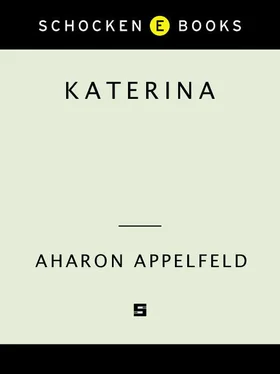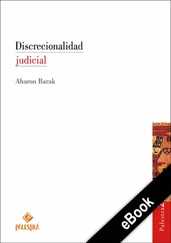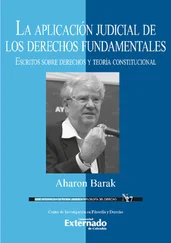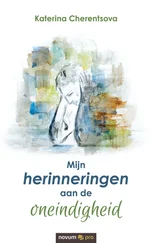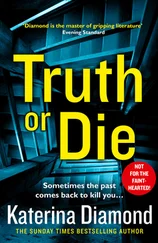“Where are you?”
“With the Jews.”
“It’s hard for me to work for Jews more than a month.”
“Why?”
“They irritate me.”
Since my childhood, every time I’d been depressed, Maria pulled me out of it. Danger meant nothing to her. She leaped off a bridge into the river like the fishermen, rode on horses, sailed rafts, and shouted out loud, “Son of a bitch!” If something struck her mind, she’d do it without hesitation.
“Where are you heading?” I asked.
“I’m going away in two hours.”
“Where?”
“To Vienna.”
She’d gotten in trouble more than once and again needed a gynecologist. Yet she emerged from all her travails stronger and more audacious.
“I’m tired of everyone. I need new sights now,” she exclaimed.
I envied her, because my own will is flinched. For a moment I was about to say, I’ll go too, but I sensed that I wasn’t ready yet for journeys like that. Maria had only to wish and she could spread her wings and take off.
We ate a good dinner. Suddenly, I saw my village before me, the meadows and the cattle and Mother standing by the dairy gate with a pitchfork in her hand, sharp contempt compressed in her eyes. It was clear she felt contempt not only for her husband and sisters-in-law but also for her childhood friends who had become rich and now ignored her. Something of that look now flickered in Maria’s eyes.
I walked her to the train platform. Now I knew that if it hadn’t been for Maria, it was doubtful whether I’d have left the village. She looked at me kindly but without pity, and she said, “You mustn’t be discouraged. You must learn to listen to your desires and not consider anyone else. People who are too considerate fall flat on their faces in the end. If you’ve decided to steal, then steal. If a fellow pleases you, sleep with him right away. The true will knows no bounds.”
That’s how Maria was. I accompanied her up the ramp and cried. My heart told me I would never see her again. Many people have been wiped out of my memory, but not Maria. She is ensconced in my heart, and I think about her often. To her credit, it should be said that she never offered false consolations. She demanded courage from everyone, even from the weak. She was contemptuous of the Jews because they love life, they cling to life at any price. “If you don’t risk your life, it isn’t worth living,” she used to say.
I parted from Maria, and the light went out above me all at once. If the old conductor had come up and said to me, “Come to my lodge and warm up my bones,” I would have gone with him. There was no will in me. I collapsed in a corner and fell asleep.
The next morning was cold and clear, and I had severe heartburn. A few drunkards clustered in a corner and cursed the income tax office and the Jews. At their stands, Jews sold candies wrapped in luscious pink paper.
“I’m not afraid,” said one of the old Jews, removing himself from a slit in the wall.
“I’ll be back,” the thug threatened him.
“Death doesn’t frighten me anymore.”
“We’ll see.”
“I’m going to death with my eyes open.” The Jew left his niche and stood up straight on the sidewalk.
“Why are you shaking?”
“I’m not shaking. You can come and see.”
“You disgust me.”
“You’re not a human being. You’re a beast of prey,” said the Jew, and he didn’t rush back to his hole.
I had neither friends nor relatives here. My purse shrank and emptied. I stood in the busy railroad station as on the day of my arrival here. My mother tongue evoked a hidden sight within me: my mother’s funeral. Often I promised myself to return to the village and kneel on my parents’ graves, but I didn’t keep that promise. My native village always had frightened me, and now even more so. Soon, I curled up in a corner and fell asleep. In a dream I saw Rosa sitting in the kitchen and clutching a cup of tea in her palm. A cold light poured over her forehead, her cheekbones jutted out, and her gray hair was not covered by a kerchief. There was no beauty in her face, just a strange restfulness.
The next day I was standing, lost in the mass, and a woman approached me and said, “Perhaps you’d like to work for me.” After days of wandering, struggle, and despair, once again an angel had appeared from on high. God almighty, only miracles happen to me. Every day the miracles are renewed and I, in my haste, had said that there was only ugliness here, only darkness.
She was a tall woman, with measured movements, very pretty, like a heroine of the Polish nobility. For a moment I was pleased that fortune had favored me with a different face this time. A Jewish home is a quiet one but very strict.
“Where have you worked until now?”
I told her.
“I too, if you don’t mind, am Jewish.”
I was astonished and, greatly embarrassed, I said, “I’m familiar with the laws of kashrut .”
“We are Jews of course, but we don’t observe the commandments.”
I didn’t know what to answer, so I said, “As you wish.”
It was a spacious home, different from regular Jewish households. In the living room stood a piano, and there was a bookcase in every room. Here, no one recited blessings and no one prayed, and in the kitchen there was no separation between milk and meat. Here, they only insisted on one thing—quiet. “There are also other kinds of Jews,” Maria’s mother had once informed me. “Free-thinking Jews. I don’t like them. The Orthodox Jews are a little coarse, but they’re stable.” Then I didn’t understand what she was talking about.
“My name is Henni, and I’m a pianist,” she introduced herself. “Don’t call me madam or Miss Trauer, and don’t address me formally. Call me Henni, and I’ll be very grateful to you.”
“As you wish.”
“We eat very little meat but a lot of fruit and vegetables. The market isn’t far. Here’s the pantry, and these are the pots and pans. I have no time for anything. I’m a slave, as you’ll see. What else? That seems to be everything.”
Henni practiced hour upon hour, and at night she shut herself up in her room and didn’t leave till morning. With Rosa I had been used to talking, and we would discuss everything, even secrets. There were days when I had forgotten that I had been born to Christian parents, that I was baptized, and that I went to church, so immersed did I become in the Jewish way of life and their holidays, as if there were no other world. And here there was neither Sabbath nor holiday. At first this life seemed like an unbroken stretch of pleasure, but I quickly learned that Henni’s life wasn’t at all easy. Once a month she used to travel to Czernowitz to appear in the concert hall, and when she returned, her face would be drawn, her mood gloomy, and for days she wouldn’t leave her room. Her husband, Izio, a quiet and mild-mannered man, tried to console her, but words were of no use. She was mad at herself.
“Henni, why are you angry?” I dared to ask.
“My performance was terrible, beneath contempt.”
“Who said so?”
“I did.”
“A person mustn’t blame himself.” I used one of Rosa’s expressions.
“That’s easy to say.”
So she dismissed me. It was hard for me to get close to her. I didn’t understand her. In the village I had never met women like that, and Rosa was different. Sometimes, after many hours of playing the piano, she would come to me and, somewhat distractedly, say, “Katerina, I thank you very much for your service. I’m giving you an extra hundred. If it weren’t for you, I wouldn’t have a home. You’re my home.”
Before the holidays, Henni’s mother used to appear, a tall and powerful woman, casting dread on everyone. The old mother was very Orthodox and anguished by her daughter’s way of life. She addressed me directly, saying, “My daughter, to my heartfelt regret, has forgotten her origins. Her husband is no better than she is. You must do that which is pleasing to God.”
Читать дальше
